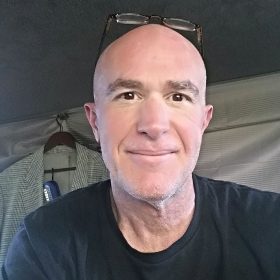What were your favorite philosophy courses at UCLA?
Philosophy of Action (Brian O’Shaughnessy); Philosophy of Mind (Thomas Nagel); Free Will & Determinism (Gary Watson); Plato’s Later Dialogues (Montgomery Furth); and Aristotle (Alan Code).
Are there any philosophical issues, readings, or topics that have stayed with you since graduation?
For me, it is still about the “Big Questions”: time, space, free will, morality, knowledge, mind and society.
Have you read any philosophy recently that you would recommend?
THE WORLD BEYOND YOUR HEAD by Matthew Crawford.
Heidegger’s BEING AND NOTHINGNESS, at last.
What was your first job or endeavor after UCLA?
My first endeavor was to arrive and settle safely in New York City with my wife.
My second was to earn my Master of Arts degree in Philosophy at the end of my first year at Columbia University. With respect to the first of these, I met with success; with respect to the second, I wonder even now why I thought the first a prerequisite and possible.
What lessons or skills from philosophy do you use in your career?
“The desire to understand the world and the desire to reform it are the two great engines of progress.” -Bertrand Russell, MARRIAGE AND MORALS


